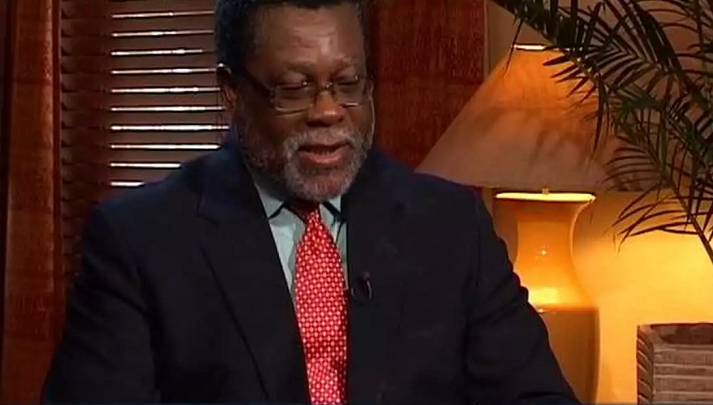
BXC adds 20MW solar power to grid
An independent power producer, BXC of China, has completed a 20 megawatt solar power plant at Gomoa Onyeadze, near Winneba in the Central Region, to feed into the national grid.
The plant, which is yet to be officially inaugurated, has been undergoing commissioning for about six months now, providing uninterrupted 20 megawatts supply to the national electricity grid.
The Energy Commission said it facilitated the speedy deployment of the plant to serve as an incentive for other Independent Power Producers (IPPs) in the renewable energy sub-sector to come on stream.
The Board Chairman of the Energy Commission, Dr Kwame Ampofo, who disclosed this to the GRAPHIC BUSINESS in Frankfurt, Germany while on a duty tour as part of high-powered delegation, said the Commission was happy about the high number of applications for photovoltaic solar IPP projects.
Delegation of German Industry and Commerce in Ghana (AHK Ghana) organised the high-powered trip to the 2016 InterSolar trade fair in Munich, Germany, as part of a programme it calls the “Delegationsreise”.
Graphic Business’s coverage of the trip was sponsored by AHK Ghana, with part support from Stanbic Bank Ghana Ltd and Access Bank Ghana Ltd.
The largest in West Africa
The BXC solar plant is currently the single largest of such a project in West Africa, bringing to 22.5MW the total volume of power the country generates from utility scale solar PV plants. The Volta River Authority (VRA) has installed a 2.5MW solar power at Navrongo, which has provided the learning curve for it, the regulator, the Power Ministry and other stakeholders in the renewable energy power sub-sector.
The move is part of the Commission’s mandate to ensure energy efficiency and sufficiency in the country, while plugging the energy generation deficit as well as meeting a target of achieving 10 per cent of the generation from renewable energy sources by 2020.
“The government a few years ago, through VRA piloted a 2.5MW plant at Navrongo. We’ve had a lot of time to monitor and realised that the system has worked well and can be expanded. The Energy Commission has consequently licensed a number of companies as Independent Power Producers (IPPs) to produce power at utility scale of up to 20 megawatts each, to feed into the national grid,” Dr Ampofo disclosed.
Increasing the quantum of power generated by the renewables is supported and driven by law, Renewable Act, 2011 (Act 832). It is to achieve 10 per cent of total electricity generated or consumed in the country coming from renewables and the Energy Commission is pushing for the achievement of the provision.
The renewable sources does not specify solar, which means biomass, hydro and wind power all fall within the bracket.
“We decided to start with solar because of the added benefits solar has. It will also give you the benefit of individual independence from any risk of the grid’s inability to meet demand. The choice has taken into consideration the recent energy crisis, which requires bringing down demand,” Dr Ampofo explained.
Closing the electricity deficit could be done through energy conservation and by introducing energy efficiency measures into the system, such as efficient appliances and bulbs, or building new power plants.
But the Energy Commission’s analyses also indicated that reducing the load on the national grid would be much effective and quicker with the solar home systems as well. The system immediately takes households off the system and serves as an alternative source of independent energy.
Solar rooftop programme and solar tendering
As per estimates, the 200,000 rooftop solar PV capital subsidy scheme alone could generate about 200 MW new installed power into the national grid. As part of the subsidy scheme, applicants are also expected to replace all their lighting lamps with the more energy efficient light-emitting diodes (LED) bulbs before they qualify for the government subsidy – 500 watts peak solar panels.
“This makes sense; otherwise you have to find money to construct a thermal power plant to deliver between 100MW and 200MW. This will mean something in the region of US$400 million. Therefore, the solar option is cost effective,” Dr Ampofo said.
The rooftop solar homes system programme was announced by the president in his 2015 Sessional Address to Parliament. According to the 2016 Budget, the Energy Commission will continue the National Solar Rooftop Programme to bring to reality the government’s commitment to the deployment of renewable energy solutions and achieve the target of having 200,000 rooftops in the country equipped with solar panels. The target for 2016 is 20,000 rooftop systems.
More producers
The Energy Commission is also currently evaluating tender documents to select an IPP to produce another 20MW solar plant to be fed into the grid. Contract with the winning bidder will be signed later part of this year.
The tender, which goes to lowest bidders, will ensure that the producer will quote competitive rate which would help reduce the price of solar power production in the country.
The 2016 Budget confirms this in paragraph 523, saying “this Tender will ensure that solar power is procured at a competitive price, and this will set the scene for cost-effective power procurement in the country.”
Trade Mission
The trade mission was led by a Renewable Energy Expert, Mr Michael Neulinger, who has been seconded to head the energy and environment department of AHK Ghana under the Experts Programme of the Federal Ministry of Economic Cooperation and Development (BMZ).
AHK’s itinerary for the delegation included visits to some solar, wind and biomass projects in some German cities. The trip was also a way of exchanging ideas, know-how, building new relationships, visiting ongoing projects and experiencing first-hand the management, integration, regulation, utilisation, transmission, financing and control of both grid connected and off-grid renewable energy technologies in Germany.